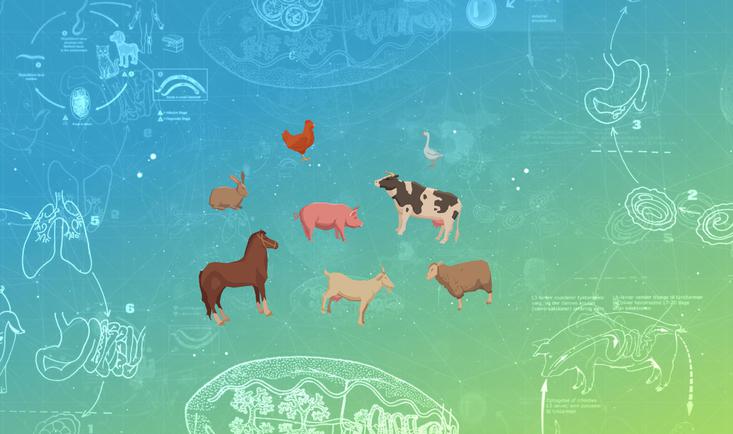
当前课程知识点:English & American Literature > Unit 12 Ralph Waldo Emerson and Nature (1836) > 12-1 Emerson and the Fragmentary Life > 12.1 Emerson and the Fragmentary Life
返回《English & American Literature 》慕课在线视频课程列表
返回《English & American Literature 》慕课在线视频列表
-1-1 The History of English Literature: A Brief Survey
--The History of English Literature: A Brief Survey
-1-2 Understanding Literature
-test 1
-2-1 Introduction to the age of Renaissance and Shakespeare’s Sonnets
--An Ethic Approach to Hamlet’s Dilemma
-2-2 A Textual Analysis of Hamlet’s Soliloquy
--A Textual Analysis of Hamlet’s Soliloquy
-2-3 An Ethic Approach to Hamlet’s Dilemma
--An Ethic Approach to Hamlet’s Dilemma
-test 2
-3-1 Life and Times
-3-2 Paradise Lost: textual analysis
--Paradise Lost: textual analysis
-3-3 Style and Characterization
-test 3
-4-1 An Introduction to the Age of Enlightenment
--4-1 An Introduction to the Age of Enlightenment
-4-2 On Characterization
-4-3 From Capitalism to Imperialism:A Cultural Critique of Robinson Crusoe
--4-3 From Capitalism to Imperialism:A Cultural Critique of Robinson Crusoe
-test 4
-5-1 “Tintern Abbey”: General Remarks
--5-1 “Tintern Abbey”: General Remarks
-5-2 Beauty in Nature and Pleasure in the Poet
--5-2 Beauty in Nature and Pleasure in the Poet
-5-3 Sublimity in Nature and Elevation and Love in the Poet
--5-3 Sublimity in Nature and Elevation and Love in the Poet
-test 5
-6-1 A Tormented Soul: The Short and Unfulfilled Life of John Keats
-6-2 A Textual Analysis of “Ode on a Grecian Urn”
--6.2 A Textual Analysis of “Ode on a Grecian Urn”
-6-3 Romantic Acceptance of Ancient Greek Culture
--6.3 Romantic Acceptance of Ancient Greek Culture
-test 6
-7-1 Jane Austen and Her “Little Bit of Ivory”
--7.1 Pride and Prejudice in Pride and Prejudice
-7-2 Jane Austen and Pride and Prejudice
--7.2 A textual analysis of Pride and Prejudice
-7-3 Jane Austen’s Achievements and Her Legacy
--7.3 Chance and the Hierarchy of Marriages in Pride and Prejudice
-test 7
-8-1 Life and Times
-8-2 Jane Eyre: Text and Context
--8-2 Jane Eyre Text and Context
-8-3 Critical Approaches and Style
--8.3 Jane Eyre Controversy and Legacy
-test 8
-9-1 Life and Times
-9-2 Great Expectations as A Social Critique
--9.2 Great Expectations as A Social Critique
-9-3 Great Expectations: Form and Style
--9.3 Great Expectations Form and Style
-test 9
-10-1 Key Features of English Modernist Literature
--10.1 Key Features of English Modernist Literature
-10-2 Themes in Araby: Spiritual Paralysis and Disillusioned Love
--10.2 Themes in Araby Spiritual Paralysis and Disillusioned Love
-10-3 Artistic Innovations in “Araby”
--10.3 Artistic Innovations in Araby
-test 10
-11-1 The History of American Literature: Defining Americanness (I)
--11.1 The History of American Literature Defining Americanness (I)
-11-2 The History of American Literature: Defining Americanness (II)
--11.2 The History of American Literature Defining Americanness (II)
-11-3 The History of American Literature: Defining Americanness (III)
--11.3 The History of American Literature Defining Americanness (III)
-test 11
-12-1 Emerson and the Fragmentary Life
--12.1 Emerson and the Fragmentary Life
-12-2 Emerson’s Transcendentalism and Concept of Self-Reliance
--12.2 Emerson’s Transcendentalism and Concept of Self-Reliance
-12-3 Emerson’s Prose Style: Unity, Flux and Polarity
--12.3 A Textual Analysis of “Self-Reliance”
-test 12
-13-1 Walden as a Nature Book
--13.1 Thoreau’s Nature Book(1)
-13-2 Walden as a Work of Literary Art
--13.2Walden as a Work of Literary Art
-13-3 Walden as a Spiritual Guidebook
--13.3 Walden as a Spiritual Guidebook(1)
-test 13
-14-1 Nathaniel Hawthorne and Puritanism
--14-1 Nathaniel Hawthorne and Puritanism
-14-2 The Empowering Woman in The Scarlet Letter
--14-2 The Empowering Woman in The Scarlet Letter
-14-3 Historical Relevance of The Scarlet Letter to the 19th Century Feminism
--14-3 Historical Relevance of The Scarlet Letter to the 19th Century Feminism
-test 14
-15-1 Mark Twain and Literary Regionalism
--15.1. Mark Twain and Literary Regionalism
-15-2 Plot and Themes of "The Celebrated Jumping Frog of Calaveras County"
--15.2 Plot and Themes of -The Celebrated Jumping Frog of Calaveras County
-15-3 “The Celebrated Jumping Frog of Calaveras County”: Gambling the Identity in the Far West
--15.3 “The Celebrated Jumping Frog of Calaveras County”- Gambling the identity in the Far West-
-16-1 William Faulkner and the Southern Renaissance
--16.1 William Faulkner and the Southern Renaissance
-16-2 A textual analysis of The Sound and the Fury
--16.2 A textual analysis of The Sound and the Fury
-16-3 Benjy Compson in Focus: Where Is the Sound? Where Is the Fury?
--16.3 Benjy Compson in Focus Where Is the Sound Where Is the Fury
-test 16
-17-1 Traditionalism in the Dawn of Modernism
--17.1 Traditionalism in the Dawn of Modernism
-17-2 “Love and a Question”: Themes and Context
--17.2 “Love and a Question” Themes and Context
-17-3 “Love and a Question”: American Hospitality and New England Shield
--17.3 “Love and a Question” American Hospitality and New England Shield
-test 17
-18-1 The Southern Belle in Trouble: Tennessee Williams’s Predicament
--18.1 The Southern Belle in Trouble- Tennessee Williams’s predicament
-18-2 A Textual Analysis of A Streetcar Named Desire, Scenes 7 & 8
--18.2 A Textual Analysis of A Streetcar Named Desire, Scenes 7 & 8
-18-3 Two Conflicting Musical Motifs: Music in A Streetcar Named Desire
--18.3 Two Conflicting Musical Motifs- music in A Streetcar Named Desire
-test 18
-19-1 The Great Arthur Miller: the American Dream “realized”
--19-1 The Great Arthur Miller the American Dream “realized”
-19-2 A Textual Analysis of Death of a Salesman, Act II
--19-2 A Textual Analysis of Death of a Salesman, Act II
-19-3 The Haunting Weight of the Great Depression
--19-3 The Haunting Weight of the Great Depression
-test 19
-20-1 Understanding Toni Morrison
--20.1 Understanding Toni Morrison
-20-2 Beloved: The Unspeakable Thing Unspoken
--20.2 Beloved:The Unspeakable Thing Unspoken
-20-3 Subversion of “Canonicity” by Toni Morrison
--20.3 Subversion of “Canonicity” by Toni Morrison
-test 20
-Achievement Test

